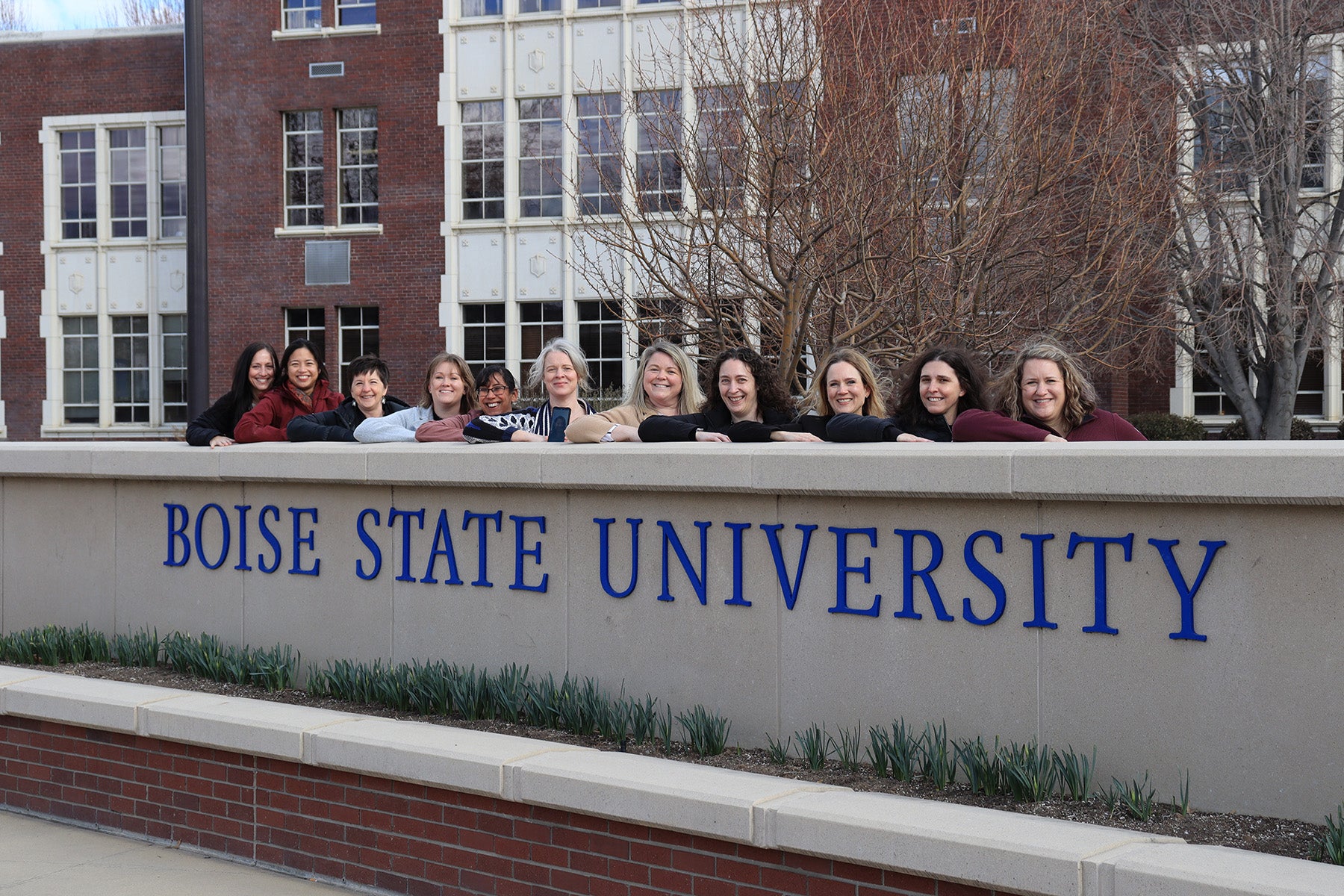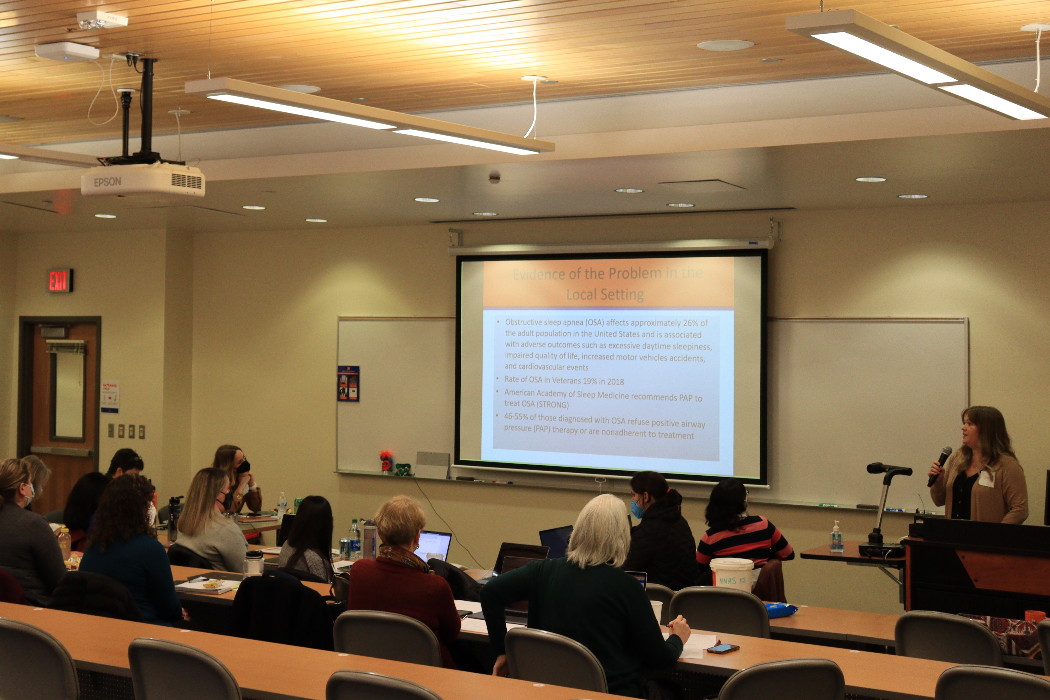
Every commencement marks a momentous occasion to celebrate students’ academic accomplishments, but commencement May 2022 was especially noteworthy for the School of Nursing. This year, the Doctor of Nursing Practice in Leadership program awarded its 50th degree since beginning in 2013.
“We’ve learned a lot from our very first cohort to our current one,” said Teresa Serratt, associate professor and director of the Doctor of Nursing Practice in Leadership program. “We have evolved our program as our environment has evolved…it’s not a static degree.”
Unlike a Ph.D. program which focuses primarily on generating new academic research, this post-master’s is a “practice degree” ideal for nursing leaders who want to take knowledge that has already been generated and translate it into actual real-world practice.
“It’s for those seeking to expand their leadership skillset to be change agents in their communities,” Seratt said.
Primarily an online program, the average cohort consists of 12 students from all across the country. While every student is required to hold a bachelor’s degree in nursing and a master’s degree in order to enroll, each cohort represents various graduate-level fields of study — such as nursing, public health, health administration and business administration — which contributes to its strength. Students not only learn from their professors, but also they benefit from their peers’ diverse backgrounds, perspectives, educational preparations and expertise.

Throughout the duration of the program, students take concepts from their classes and actively apply them to a scholarly project in which they seek to address real-world problems. Their work is evidence-based, meaning students “complete a comprehensive literature search and come up with potential solutions based on the existing results in the evidence,” explained Serratt.
The goal of the program is not just for students to successfully finish a project, but to learn key concepts, develop a network of lasting connections within their cohort and produce a project that can be sustained throughout their organizations. Toward the end of the program, students evaluate their work and self-reflect on lessons they may have learned during the project, which is not a step commonly emphasized in doctoral research.
“We’re teaching them a process that they can go out in their careers and replicate,” Serratt said.
This model of doctoral education produced graduates with unlimited potential for positive change; their reach goes beyond a particular hospital unit or facility to entire health systems and communities across the nation.
“If they’re disseminating [and] modeling what they’ve learned, people in their organizations are benefitting from that knowledge and maybe even applying it themselves,” Serratt said. “It has the ripple effect.”
Applications for the next fall cohort are accepted until July 1.
Learn more about the Doctor of Nursing Practice in Leadership program